
Living organ donation is an incredible opportunity to save lives. Here's why one local woman stepped up.
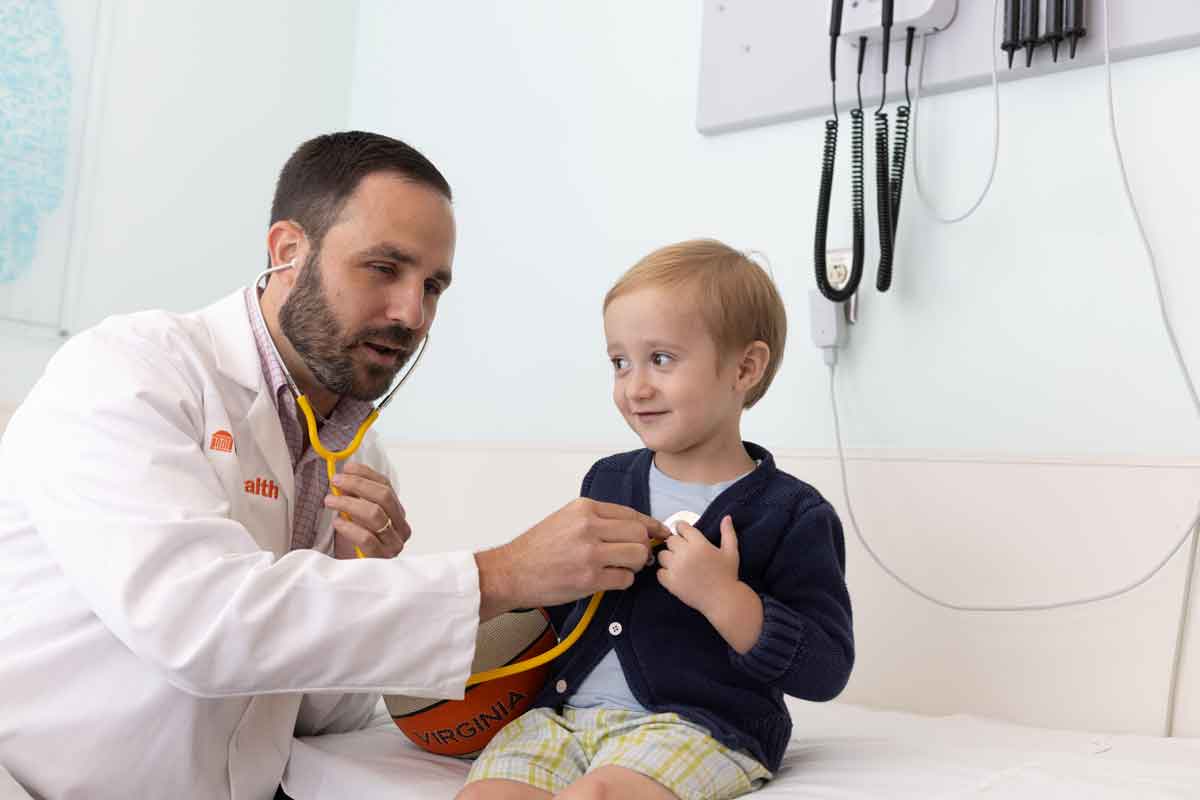 Have you ever thought about saving a life? Living organ donation can save someone needing a life-saving organ transplant. You don’t need special training, cool equipment, or a secret identity. All you need is to be healthy and be ready to donate.
Have you ever thought about saving a life? Living organ donation can save someone needing a life-saving organ transplant. You don’t need special training, cool equipment, or a secret identity. All you need is to be healthy and be ready to donate.
According to Donate Life America, 16 people each day die waiting for an organ transplant. Another person is added to the waitlist every 8 minutes. About 86% of people on the list are waiting for a kidney.
Becoming a living organ donor can make a real impact on the life of someone you care about. Most people who get a transplant return to having a normal, active life. By donating an organ, you can give the gift of a longer and healthier life.
Living organ donation is when you donate one of your own organs while you’re still alive and healthy to someone who needs an organ transplant. At UVA Health, living organ donors can give:
When you decide to become a living organ donor, you’ll have your own medical team that makes sure you’re healthy enough to donate, both physically and mentally. This is a separate care team that is focused only on the donor. After donating your organ, this team also helps you recover quickly and safely. Living organ donors go on to live normal, healthy lives after their donation.
Living organ donation makes a big difference for people who are waiting for a transplant. This kind of donation helps save lives because it makes organs available sooner. There are over 100,000 people on the waiting list for an organ transplant in the U.S. Many people die while on the waitlist because there aren’t enough available organs from deceased donors.
Living organ donors can give to a family member, friend, or a stranger. Living organ donation is a generous act of kindness that can give someone a second chance at life.
The road to living organ donation usually starts when you decide you want to donate. Maybe you have a friend or family member in need of a new kidney or liver.
You go through many medical tests to make sure you’re healthy enough to donate. These tests also check to see if your organ is compatible with the recipient. That means their body can accept your organ. If you aren’t compatible with the person you would like to donate to, don’t worry – there are still ways you can give your organ and the recipient still gets a compatible organ.
Once the donation is approved, you’ll have surgery to remove either one kidney or part of your liver. After the surgery, you’ll stay in the hospital for a few days to recover. Most donors get back to living a normal, healthy life pretty quickly.
The donated organ is then transplanted into the recipient, the person who needs it. After their transplant surgery, we make sure their body accepts the new organ and they have a healthy recovery.
Read on to see donors and organ recipients share their stories about organ donation at UVA Health. You can meet doctors who work with donors and recipients, and see some myths and facts and living organ donation.
Why should you choose UVA Health for your living organ donation? Here, you’ll find:
Be a hero and save a life today. Sign up to be a living organ donor at UVA Health.

Living organ donation is an incredible opportunity to save lives. Here's why one local woman stepped up.

For Donate Life Month, UVA Health planted pinwheels to honor those who've given life to others.
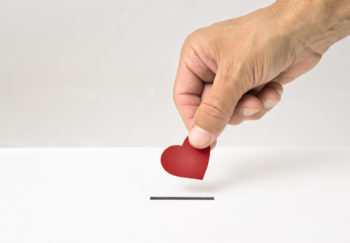
The demand for donated organs is greater than ever. In the absence of more donors, UVA Health is finding new solutions to overcome the shortage.

When Veronica Downing found out she needed a kidney transplant, she and her husband became part of UVA's first paired exchange programs. Now she shares an update on how life has been.

Almost two dozen eligible patients die each day waiting for the right organ to become available. The only way to overcome the organ shortage is to encourage more people to become organ donors.
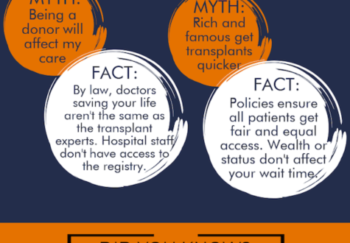
While 95 percent of Americans favor organ donation, only 58 percent have registered. Myths and misunderstandings prevent someone from signing up. Bridge the gap, learn the facts and donate life.

More patients are eligible for organ transplantation than ever before. If you've been told you're not a candidate, it may be time to seek a second opinion at UVA.
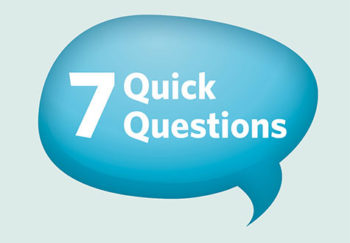
We're kicking off Donate Life Month by talking to pediatric liver transplant surgeon George Mazariegos, MD. Mazariegos works at both UVA Children's Hospital and Children's Hospital of Pittsburgh of UPMC.
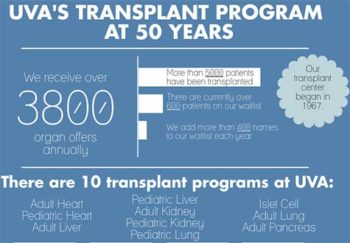
UVA Transplant Program 50th Anniversary. This infographic gives a brief history of the numbers behind the successful program.
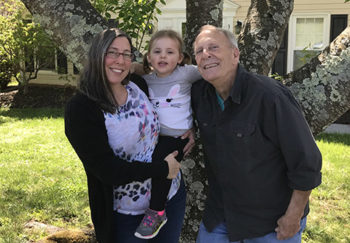
As we reflect on 50 years of UVA’s transplant program, we're revisiting some previous organ donation stories. We caught up with patients who had liver and lung transplants years ago.
Get stories & health tips every week